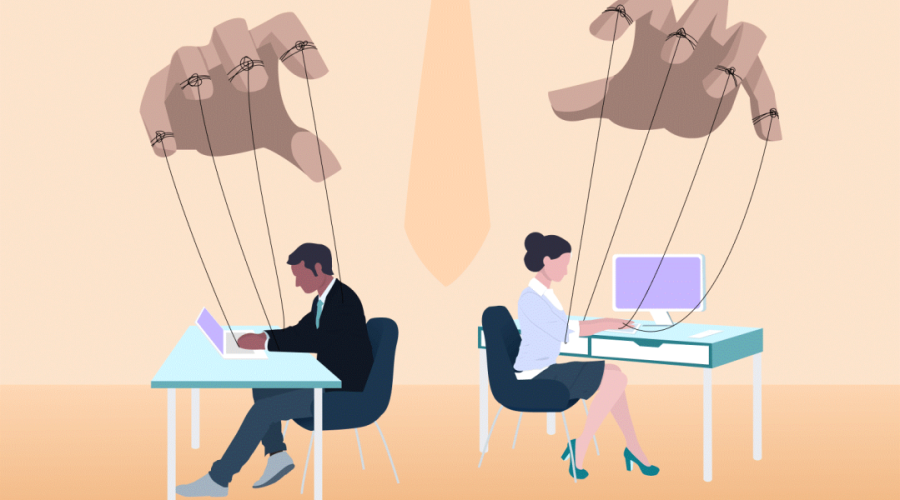
Micromanagement and Poor Self-Control
Micromanagement and Poor Self-Control: Challenges in Tourism and How to Overcome Them.
In the fast-moving tourism industry, how we manage people and control ourselves plays a huge role in both personal and professional success. Unfortunately, two common issues—micromanagement and poor self-control—can hold people back, especially in a field like tourism, which demands creativity, flexibility, and quick decision-making. In this article, we'll dive into how these issues affect tourism professionals and students preparing to enter the industry, and explore ways to avoid them.
What Is Micromanagement?
Micromanagement happens when a manager feels the need to oversee every detail of their employees' work, even the smallest tasks. While this might be done to avoid mistakes or ensure quality, it often has the opposite effect. In an industry like tourism, where teamwork, trust, and adaptability are essential, micromanagement can create a lot of unnecessary stress and slow things down.
How Micromanagement Affects Tourism
Stifles Creativity: Tourism is all about new ideas, whether it's planning a unique tour or solving an on-the-spot issue. When employees are micromanaged, they lose the freedom to think creatively or handle problems on their own. Over time, this limits the innovation that the tourism industry thrives on.
Creates Stress: Employees who feel like they’re always being watched often experience higher levels of stress. In a field like tourism, where professionals are constantly juggling customer service, logistics, and problem-solving, this added pressure can lead to burnout.
Delays Decision-Making: In tourism, quick decisions are crucial, whether it’s responding to a guest’s needs or adjusting plans for unforeseen events. Micromanagers who insist on approving every little thing slow down the process, which can hurt the overall customer experience.
The Importance of Self-Control
Self-control, the ability to manage your emotions and actions, is crucial in every profession, but particularly in tourism. A lack of self-control can show up as procrastination, impulsive decisions, or emotional outbursts, all of which can damage your reputation and limit your success.
Here are some common ways poor self-control can impact tourism professionals:
Procrastination: Without self-discipline, it's easy to put off important tasks until the last minute. In tourism, where timing and responsiveness are everything, procrastination can lead to missed opportunities or frustrated clients.
Impulsive Choices: Quick decision-making is key in tourism, but acting too quickly without fully thinking things through can lead to mistakes. Poor self-control might cause someone to make decisions that solve an immediate problem but create bigger issues down the road.
Emotional Reactions: Tourism professionals frequently deal with difficult situations, like handling complaints or last-minute changes. If you don’t manage your emotions well, it’s easy to react impulsively and damage relationships with clients or colleagues.
How to Break the Cycle: Improving Management and Self-Control
1. Trust Your Team
For managers, one of the most important things you can do is trust your employees. Give them the freedom to make decisions and take ownership of their work. Instead of micromanaging, provide support and feedback when necessary. This approach not only boosts employee morale but also allows them to develop their problem-solving skills.
2. Delegate Effectively
Delegation is a powerful tool for avoiding micromanagement. By giving tasks to capable team members, you reduce your workload while building their confidence. In tourism, delegation also allows for faster responses, as employees are empowered to take charge of situations as they arise.
3. Set Clear Boundaries
If you’re prone to micromanaging, setting boundaries can help. Clearly define when you need to step in and when you should trust your team to handle things. This way, you’re available when they need guidance, but you’re not constantly hovering over them.
4. Practice Mindfulness
Mindfulness, or being fully present in the moment, can significantly improve self-control. Instead of reacting impulsively, take a step back and consider the bigger picture. This approach helps you make thoughtful decisions and manage your time better.
5. Create a Schedule and Stick to It
Staying organized is key to managing your time and avoiding procrastination. By creating a daily or weekly schedule, you can prioritize tasks, meet deadlines, and avoid last-minute rushes. This not only boosts productivity but also reduces stress.
6. Regular Self-Reflection
Taking time to reflect on your actions is a great way to improve both self-control and management skills. Ask yourself: Are you micromanaging? Are there areas where you could show more trust in your team? Reflection helps identify habits that aren’t working and allows you to adjust your approach.
Micromanagement and poor self-control are two significant barriers to success in the tourism industry. For those studying tourism or just starting their careers, understanding how these behaviors impact performance can help build a better foundation for professional growth. By trusting others, practicing delegation, and improving self-discipline, you can create a more positive work environment and develop the skills necessary for a thriving career in tourism.
In a field that values creativity, adaptability, and teamwork, it's essential to foster these qualities in yourself and others. Learning to manage effectively and practice self-control can make all the difference in your career path, whether you're leading a team or building your own future in tourism.






